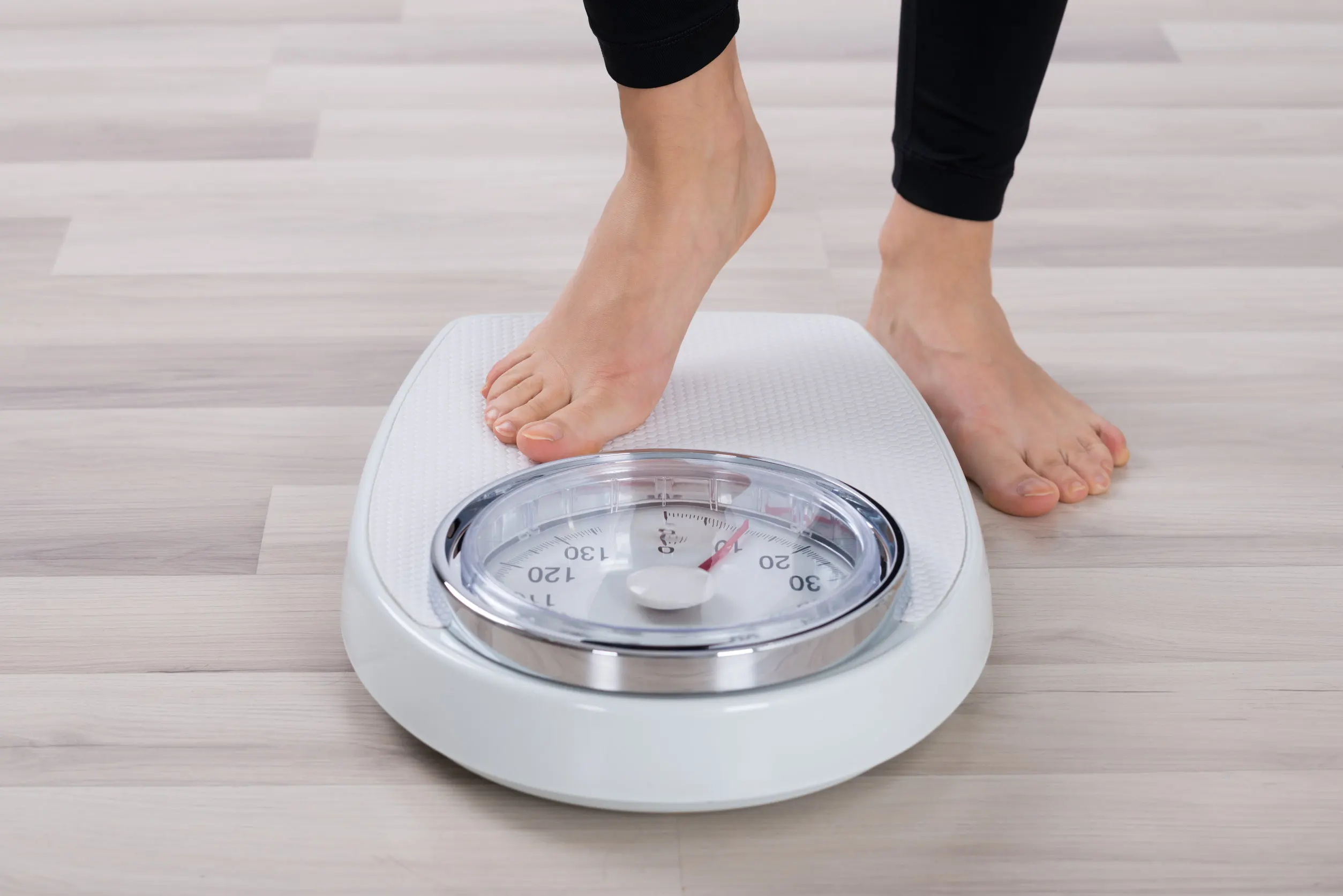Vitamin D and Weight Loss: How Are They Related?


Written and verified by the nutritionist Saúl Sánchez Arias
The levels of vitamin D in the blood can be closely linked to weight loss, even from several different points of view.
When it comes to vitamin D, we’re talking about one of the nutrient deficiencies par excellence and that’s extremely important to the functioning of the human body. In this article, we’ll tell you what you should know about it so that you are aware of the need to optimize your body’s synthesis of this element.
To prevent nutritional deficits, it’s advisable to plan a varied and balanced diet. It will be key to include many different foods while always trying to ingest the same amount of calories that are expended. However, with vitamin D, there are some more things to keep in mind, since sun exposure influences its synthesis and metabolism.
Vitamin D levels in overweight people
The first thing you should know is that people with obesity and overweight tend to have lower circulating vitamin D levels. In these cases, deficits tend to be more marked.
This is because we’re talking about a fat-soluble compound, i.e., it accumulates in fat. The greater the amount of this tissue, the lower the availability of the element for the development of physiological functions. A study published in the journal Jornal de Pediatria confirms this.
Thus, it’s not surprising that when a person begins to lose weight, the levels of the nutrient in the blood begin to increase. In principle, this is considered a good thing, although it could have harmful effects if the maximum recommended ranges are exceeded.
This is not a frequent occurrence. You would have to lose a lot of weight and very quickly for this to happen.
In any case, to prevent this type of alteration, it’s advisable to get regular blood tests. This will also allow you to assess the need for supplementation in case of deficiency.
We must not forget that maintaining low levels of this nutrient increases the incidence of many chronic diseases. This is evidenced by research published in the International Journal of Molecular Sciences.

We think you may be interested in reading this, too: Don’t Have Time to Go to the Gym? You Can Exercise at Home
Vitamin D deficiency and weight loss problems
It’s key to comment that maintaining a sustained vitamin D deficit can hinder weight loss, facilitating the accumulation of subcutaneous adipose tissue. This is due to the genesis of an inflammatory state derived from progressive insulin resistance. From this point on, the body becomes inefficient in using fatty acids as an energy substrate, so they tend to be reserved.
It’s essential to improve your sun exposure habits in order to maintain your vitamin D levels in an optimal range, thus reversing the problem. It should also be noted that the deficit itself will condition strength values, according to a study published in the Journal of Strength and Conditioning Research. The result is a reduced ability to perform physical exercise, which puts the person in a loop toward gaining more fat mass.
As if all this weren’t enough, an insufficient circulating dose of vitamin D in the body will hinder calcium homeostasis. Less of the mineral will be fixed in the bones.
Thus, not only can this lead to sarcopenia over the years, but also osteoporosis. Both of these diseases have a very negative effect on a person’s quality of life, increasing the incidence of many other chronic diseases.
Like this article? You may also like to read: What Exercises does Jennifer Lopez Include in Her Routine to Maintain a Slim Figure?
How to increase your vitamin D levels to ensure weight loss
In people without obesity, it’s necessary to promote good sunlight exposure habits to improve vitamin D levels and promote weight loss. It’s best to expose oneself to the sun outside the central hours of the day for about 15 to 20 minutes.
This routine should be progressive and constant. The burns caused by the sun are harmful to the skin and can be avoided with specific precautions.
It’s extremely important to wear sunscreen and limit your exposure to the sun during the hottest hours of the day. If you continue in the sun, you will also have to reapply the cream frequently.
However, it’s always advisable to check the labeling of sunscreen products to prevent possible hormone disruptors in their ingredients. If present, the synthesis of testosterone and other internal substances could be altered, which will also negatively affect muscle strength values and the ability to lose weight.

A vitamin D deficit can condition weight loss
A vitamin D deficit negatively conditions weight loss, although it can also be associated with situations of obesity. This is a fundamental nutrient to consolidate a good state of health in the medium and long term, so it’s key that you maintain optimal ranges of this vitamin.
One solution may be to resort to supplementation.
Special emphasis should be placed on the need to maintain a series of healthy habits together to prevent the development of chronic diseases. It’s not only enough to eat well and expose oneself to the sun, but it’s necessary to exercise on a regular basis.
All cited sources were thoroughly reviewed by our team to ensure their quality, reliability, currency, and validity. The bibliography of this article was considered reliable and of academic or scientific accuracy.
- Fiamenghi, V. I., & Mello, E. D. (2021). Vitamin D deficiency in children and adolescents with obesity: a meta-analysis. Jornal de pediatria, 97(3), 273–279. https://doi.org/10.1016/j.jped.2020.08.006
- Latic, N., & Erben, R. G. (2020). Vitamin D and Cardiovascular Disease, with Emphasis on Hypertension, Atherosclerosis, and Heart Failure. International journal of molecular sciences, 21(18), 6483. https://doi.org/10.3390/ijms21186483
- Chiang, C. M., Ismaeel, A., Griffis, R. B., & Weems, S. (2017). Effects of Vitamin D Supplementation on Muscle Strength in Athletes: A Systematic Review. Journal of strength and conditioning research, 31(2), 566–574. https://doi.org/10.1519/JSC.0000000000001518
This text is provided for informational purposes only and does not replace consultation with a professional. If in doubt, consult your specialist.








